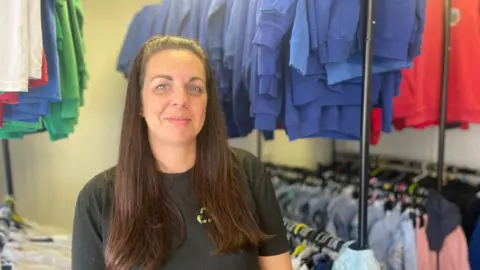Parents brace for rising school costs as annual minimum approaches £2,300
Families in Wales and across the UK say they are budgeting months ahead as the Child Poverty Action Group warns lower- and middle-income households face a ‘real struggle’
Parents say they are dreading the financial hit of the new school year as the minimum cost of sending a child to secondary school in the UK rises to almost £2,300 a year, up about £600 since 2022.
Parents interviewed in Wales and campaigners said rising bills for uniforms, equipment and other school-related costs are forcing households to plan and save months in advance to avoid shortfalls in August and September.

Vicky Williams, a mother of two from Caerphilly, said she begins budgeting for the next academic year at New Year and grows anxious after Christmas about whether her children will have everything they need. "I dread it after Christmas," she said. "I know if I don't plan or budget I am going to be struggling August, September time. I'll be getting anxious that my children aren't going to school with the proper equipment so I've got to plan well in advance."
The Child Poverty Action Group (CPAG), which compiled the estimate, said the increase in the minimum annual figure is placing particular pressure on lower- and middle-income families, who it said face "a real struggle" to meet essential school-related spending. The CPAG calculation covers a baseline of compulsory costs for a child in secondary education.
Welsh government officials responded that they were doing everything they could to support families through the school year, but did not specify new measures in response to the latest CPAG figures. Local authorities and charities frequently run uniform banks, grant schemes and targeted support for families, and schools sometimes offer payment plans for trips and extracurricular activities.
Parents and advocacy groups say the timing of many essential purchases—uniforms, footwear, stationery, and specialist kit—concentrated in late summer, exacerbates the pressure on household budgets. Several parents interviewed said they had to start saving and shopping sales months in advance, and to prioritise which items were bought new and which could be second-hand.

Economists and campaigners say sustained cost increases in household essentials, transport and energy over recent years have amplified the impact of school-related costs, but the CPAG figures isolate the minimum of directly education-related spending. The group has previously urged governments and schools to expand targeted support and to minimise one-off costs where possible.
As the new term approaches, families planning ahead said they continued to seek community and school-based help to manage costs. Organisations supporting children in poverty called for clearer, more accessible information about local support and for measures to control or reduce the peak financial pressure that comes with the start of term.